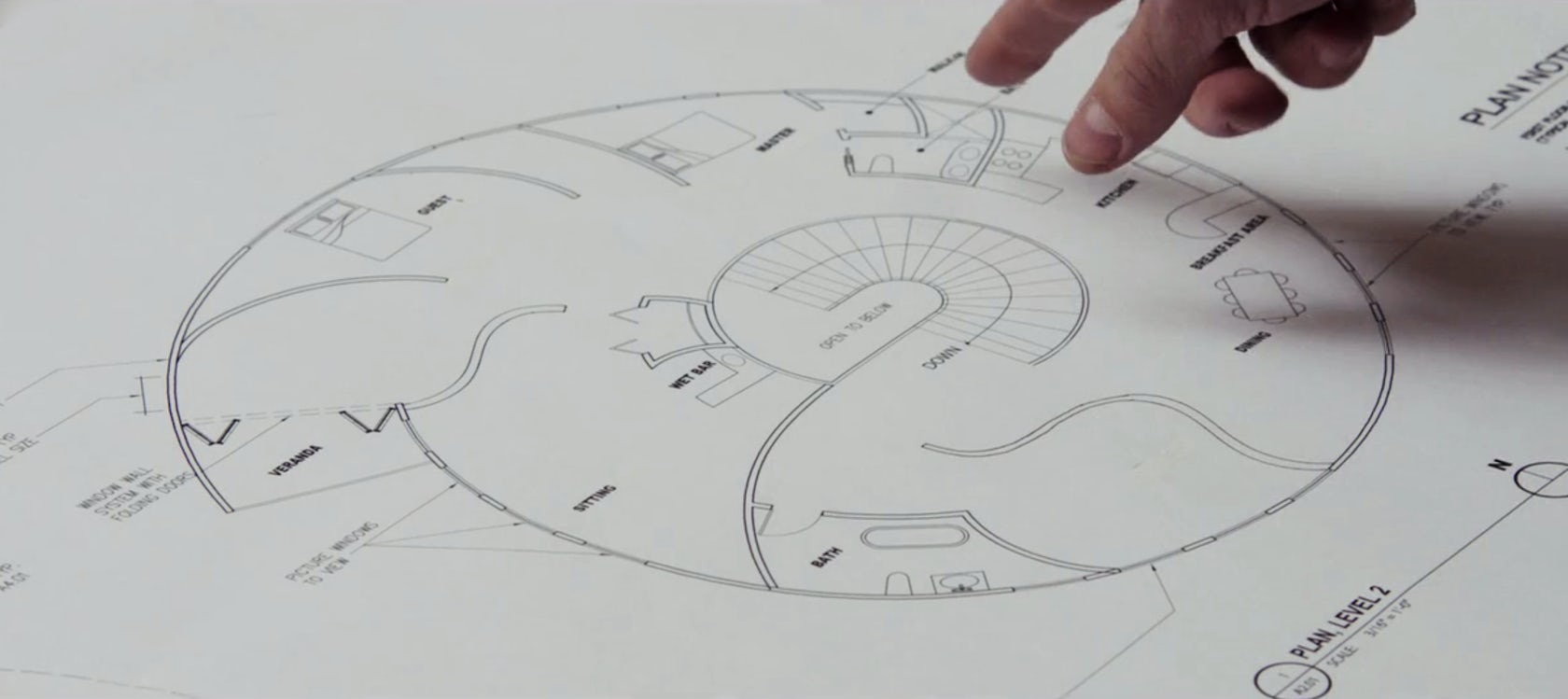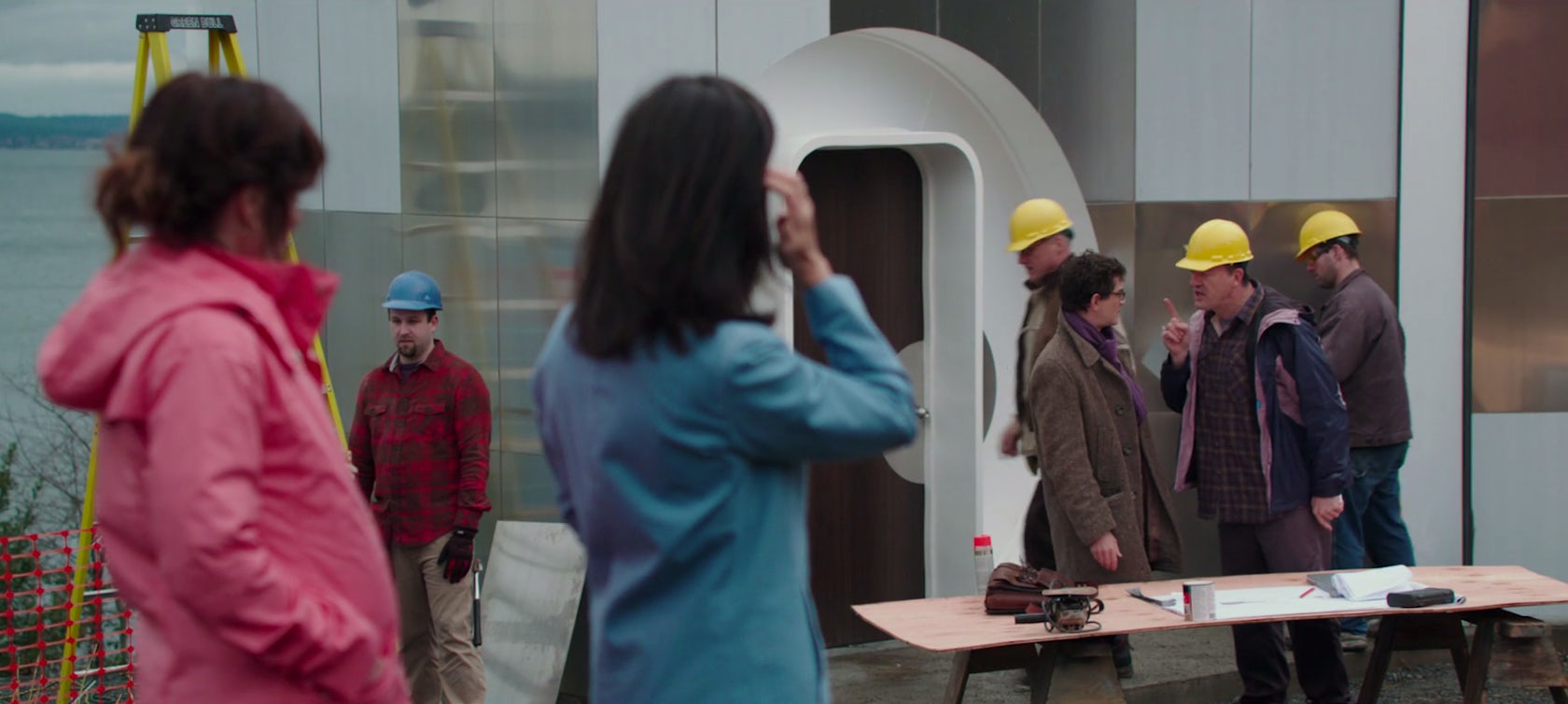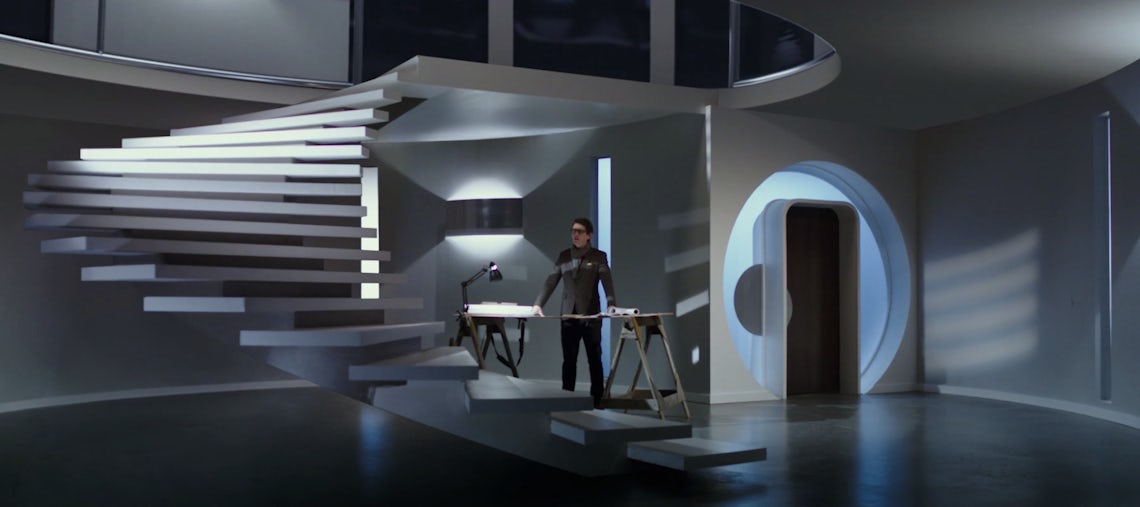“As an architect, I have the job of transforming hopes and dreams into wood, glass, steel and concrete …”
The opening gambit of our poetic protagonist in the trailer of Johnathan Parker’s upcoming movie “The Architect” taps into the romanticism of a profession that has long walked the line between legendary status and farce in popular culture. This visceral sound bite might sound like a promising introduction — perhaps the architect will play superhero this time, saving the day with design for beleaguered clients Colin and Drew (Eric McCormack and Parker Posey)?
Well, architects, if that’s what you are hoping for, prepare to be disappointed.
As the trailer unfolds, the supposed mystique of architect Miles Moss (James Frain) disintegrates into one of the most tired clichés the film industry has ever seen — and that is saying something when you consider the number of times architects have been parodied on the silver screen.
“I don’t know why people hire architects and then tell them what to do,” complains Moss, stealing words from the mouth of Frank Gehry, perhaps the most well known and simultaneously the least archetypal architect living today. Therein lies this film’s greatest flaw. It reinforces the idea that all architects are like Gehry: tortured artists, the conjurers of icons, old white men who must have it their way or no way at all.
While those within the profession know better, many members of the wider public will sit down with their popcorn in the fall and roll their eyes at Moss, a walking personification of pompous elitism.


“With a painter or a sculptor, you wouldn’t dare suggest alternatives,” exclaims Moss, “but an architect has to put up with anything!” Presenting the architect as a self-pitying drama king is intended as a source of theatrical humor, but real-world architects are likely to be more embarrassed than amused by Frain’s hackneyed caricature.
If the architect’s personality leaves something to be desired, perhaps Moss’s design for the house itself could be this movie’s saving grace? An homage to every modernist landmark imaginable, Colin and Drew’s “dream home” has a certain allure, even if it is oversized, over-engineered and populated with wholly impractical “sleeping spaces” (otherwise known as bedrooms).

Any prospect of redemption appears to crumble, though, as an exasperated contractor yells at Moss: “I am NOT losing money on this job based on your incompetence!” Builder’s bias notwithstanding, it is probably safe to assume that the adept project management skills displayed by the vast majority of architects will not be taking the spotlight on this particular stage. Instead, the profession is painted as frivolous, unorganized and self-indulgent.
Think it couldn’t get any worse? Think again.
It is soon revealed that the architect’s unpleasant demeanor extends beyond his pretentious rhetoric: Moss becomes entangled in a forbidden romance with Drew, who is inexplicably seduced by the man’s self-professed creative genius. Sure, this ludicrous turn of events is the stuff of pantomime, but it all plays into the portrayal of architects as underhand, out for themselves and not to be trusted on the most fundamental of levels.


I can hear you now, exclaiming in chorus, “It’s a comedy! Lighten up!”
You are entirely correct, of course: Few people are under the impression that all lawyers are corrupt because they watched Jim Carrey tear up the courtroom in “Liar Liar.” Here’s the catch, though: On a subliminal level, these satirical follies can remain in the public psyche long after they have been relegated to the DVD bargain bin.
From a public relations standpoint, the architectural profession has not been in the best shape for a number of years. At best, this movie will be brushed off as another formulaic sitcom offering a moment of mindless amusement for a couple of weeks. At worst, it will hurt the collective reputation of hardworking, talented architects around the globe for a couple of decades.
“Often,” sneers the increasingly villainous Moss toward the end of the trailer, “The opinion of the client must be disregarded for his own good.”
For your own good, do not entertain this movie when it hits your local screens this fall.
Yours cinematically,
The Angry Architect




